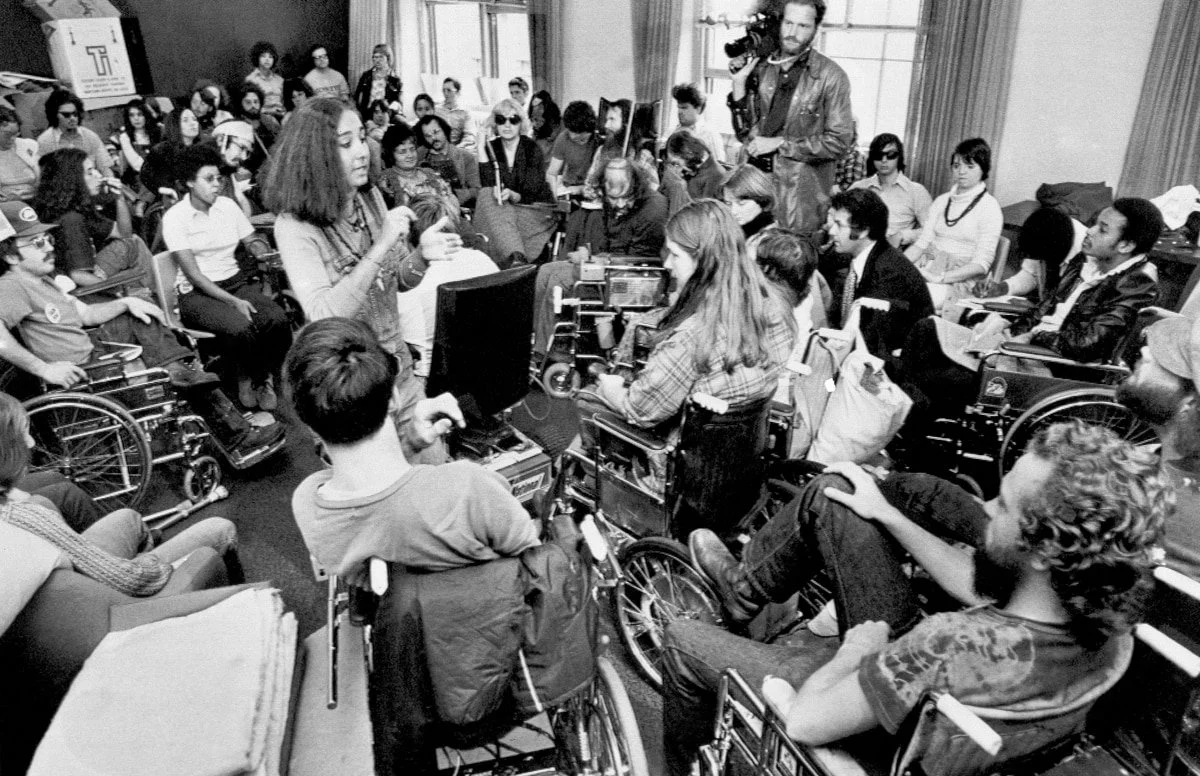Book Project
Governing Disability: The Politics of Classification and Dis/Abled Citizenship
Michel Foucault once asked: “Is it surprising that prisons resemble factories, schools, barracks, hospitals, which all resemble prisons?” From institutionalization and mass incarceration to segregated education settings and welfare surveillance, disabled people are frequent targets of state control.
Within this context, "disabled citizenship" emerged from binary legal categories that are not biologically-determined but rather socially constructed. These categories often result in limited access to social resources and support systems. However, the provision of services for disabled individuals comes at a cost—a Faustian bargain. Service users and consumers find themselves ensnared in a web of coercion, surveillance, and biopolitical control.
In legal encounters, medical professionals' testimonies take precedence over the expressed preferences and interests of disabled individuals. This privileged position of medical professionals plays a crucial role in determining who is considered "disabled" and in shaping treatment plans for those deemed "incompetent." This work aims to shed light on the structural epistemic injustices embedded within the framework of disability law.
The central objective of this book is to analyze how the law contributes to these epistemic injustices and their profound effects on what we term "disabled citizenship." By doing so, it seeks to identify key contingencies in the political development of disability categories and uncover possibilities for creating more inclusive and accessible futures.
Working Papers
Medical Authority & Democracy
Medical knowledge and authority are hotly contested in contemporary American politics. Pundits, politicians, and the public routinely question the knowledge and legitimacy of public health professionals and medical doctors. Mis- and dis-information abound.
This piece considers the ways in which the 6-3 conservative Supreme Court is increasingly entertaining partisan debates about public health and medical authority. Specifically, the Court is entertaining multiple claims across administrative law and civil rights law. I argue that a majoritarian throughline exists in these cases that both inverts the proper relationship between medical science and democracy and misses the fundamental point that scientific disagreement is not itself a reason to refuse to ignore scientific findings that contradict a justice’s political mores.
But simply “believing science” is not adequate. The paper seeks to carve out a more productive relationship between medicine and democracy— one that avoids the eugenics and medicalization that has historically plagued medical science, while also noting the legitimate place for scientific evidence in supporting people’s rights to live independently and avoiding dysgenic tendencies.
The Section 504 Trainings
One article-in-progress, coauthored with legal historian Karen Tani, considers the co-production of law and citizenship at an important moment in the history of the administrative state. In “‘This is Our Law’: Delegated Governance and Disabled Citizenship at the End of the New Deal Order,” we examine governmentally funded trainings that were administered by disability advocacy organizations and run by disabled trainers after the passage of Section 504 of the Rehabilitation Act of 1973. Section 504 was the first civil rights statute for people with disabilities, and after the passage of the regulations, the government funded national trainings by disability rights organizations aimed at educating people about their rights under the new law. We argue that these trainings are properly understood as “delegated governance,” which political scientists define as private actors taking on governing functions. Drawing from the insights of legal historians, as well as theories about bureaucratic political development by political scientists, we consider the significance of these trainings using archival material from the Disability Rights Education and Defense Fund (DREDF). Specifically, we suggest that organizations, with little oversight from HEW, were able to materially shape how the new regulations were implemented by instructing trainees that they could directly negotiate their needs with government agencies. This “rights-bearing mindset,” as it was called de-centered courts as the site where the 504 regulations were given substance and instilled a sense of ownership in disabled trainees. Trainees left with the impression that this was their law. Although the expectation of citizen enforcement created its own exclusions, the 504 Trainings are an example of civil rights enforcement outside of the federal courts and the “litigation state,” as traditionally construed.
Publications
-
Laws structure people’s “lived citizenships.” This paper considers the ways in which Dobbs v. Jackson Women’s Health Organization gave states the power to regulate reproduction in ways that have disproportionate consequences for pregnant people with disabilities. Specifically, Dobbs did not eliminate the right to bodily integrity, but rather put conditions on who can claim a right to bodily integrity in federal courts. Moreover, uneven changes to Medicaid financing of abortions have created a “postcode lottery.” People’s ability to receive care is determined by a politics of place—or even individual providers. These policies create structural inequalities.
-
This Paper considers the laws surrounding reproductive federalism, as well as how they are being implemented, to consider the implications of heightened reproductive federalism for citizenship and access to care for people with disabilities.
-
Mitchell Hamline Law Journal of Public Policy & Practice (2022)
To be reprinted by the UCLA Disability Law Journal in 2023.
-
Temple Law Review (2021)
-
Forthcoming in Nebraska Law Review. Current version is on SSRN.
-
Res Philosophica (2016)
Public Scholarship
“Making a Fuss About Disability Rights,” The Regulatory Review (May 8, 2023).
“Three Disturbing Truths about Money & Mental Health We Can Learn From the #FreeBritney Saga,” The Financial Diet (June 29, 2021)

